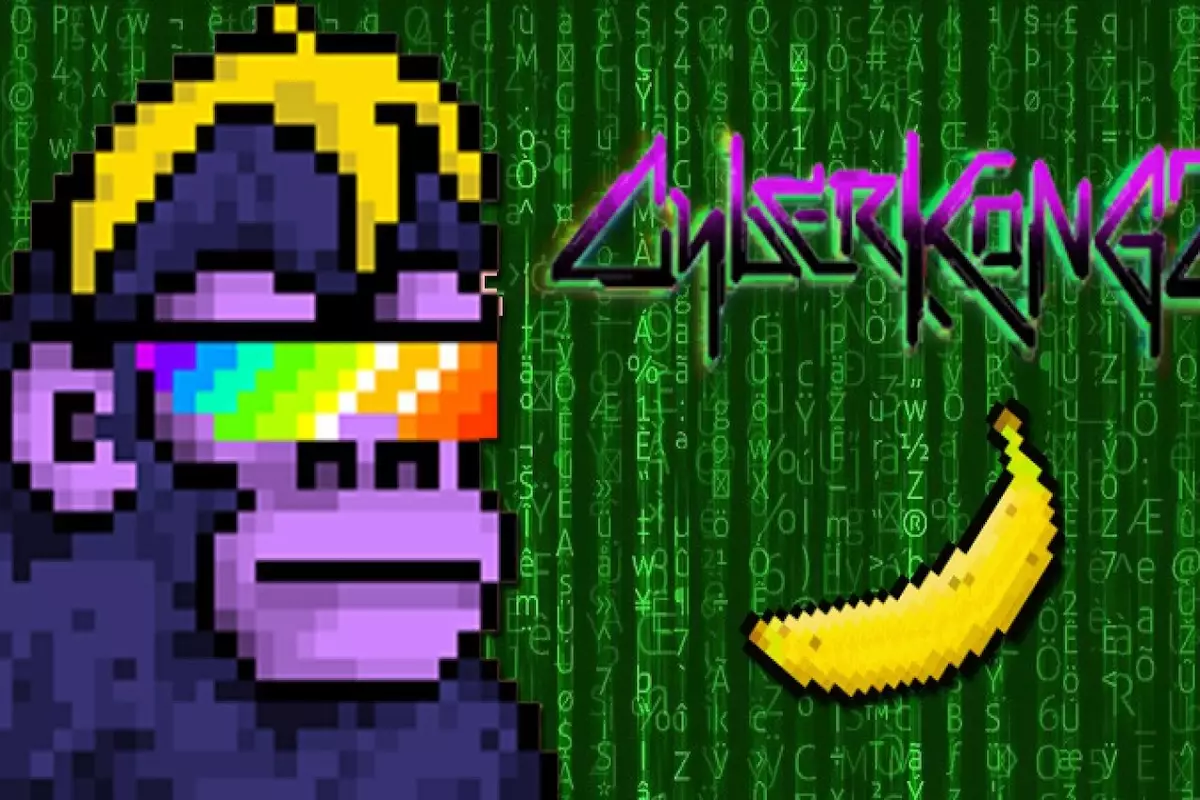The issuance of a Wells Notice to the CyberKongz project by the U.S. Securities and Exchange Commission (SEC) has stirred a whirlwind of responses within the Web3 gaming community. This notice signifies potential enforcement actions concerning non-fungible tokens (NFTs) and indicates a pivotal moment in the evolving landscape of digital asset regulation. As NFTs increasingly transform the gaming industry, understanding their classification and the implications of compliance has become more critical than ever for developers, investors, and players alike.
Initially launched in April 2021, CyberKongz made waves in the NFT market with the sale of its Genesis Kongz. However, the SEC’s standpoint—labeling these tokens as securities—has triggered a broader examination of how digital assets are categorized and regulated. The classification of these tokens is far-reaching; it opens up discussions about the future of fundraising, community governance, and the tokenomics of various blockchain gaming initiatives. The assertion by the SEC that NFTs can be viewed through the lens of securities law places CyberKongz in an uncomfortable spotlight, but it also serves as a crucial test case that could reshape the industry.
The ramifications of the SEC’s decision extend beyond the confines of CyberKongz itself. With a 30-day window to mount a defense, the project has the opportunity to influence an entire ecosystem. If the SEC’s perspective gains traction, it could redefine how many blockchain gaming projects structure their operations, potentially necessitating significant adjustments to their existing frameworks. The implications of such a shift are monumental, as it could fundamentally alter the way developers approach token distribution, in-game economies, and user engagement incentives.
Industry players are already responding to the situation, with notable figures such as those behind Axie Infinity signaling their support for CyberKongz. Many within the gaming community argue that enhanced regulatory oversight may ultimately compel the U.S. government to provide clear definitions and guidelines for NFT creators. This clarity could pave the way for sustainable and compliant business practices within the blockchain gaming sector, allowing developers to thrive while prioritizing safety and transparency.
While the SEC’s focus is significant, it is essential to recognize that the United States is not navigating these waters in isolation. The global response to NFT regulation varies considerably across different regions, each with its unique stance. For instance, Europe is preparing for a comprehensive regulatory framework under the forthcoming MiCA (Markets in Crypto-Assets), which may lead to clearer definitions for NFTs. Some European authorities view these tokens as outside the realm of traditional securities laws, while others advocate for stricter oversight—especially in instances where NFTs function as investment vehicles.
Meanwhile, countries in Asia, such as Singapore and Hong Kong, are proactively fostering a conducive environment for innovation in Web3 technologies. However, regulators remain vigilant, ensuring that measures are in place to protect consumers and prevent fraudulent activities. Conversely, more relaxed regulatory frameworks in Latin America and Africa see NFTs as tools for economic empowerment, albeit with a watchful eye on potential risks.
Navigating this labyrinth of international regulatory environments poses a significant challenge for projects seeking to operate in multiple jurisdictions. As a result, developers must adopt strategic compliance planning to ensure they can meet diverse requirements while pursuing global growth.
The possibility of classifying gaming tokens as securities invites a wave of compliance requirements that could reshape the industry landscape. Transparent disclosures and strong investor protection measures will become paramount as gaming companies confront increased scrutiny. Startups that once thrived through experimentation with tokenomics and community governance will find themselves needing to navigate a more rigid regulatory landscape. This transition not only tests resilience but also demands a shift in approach—adapting to evolving regulatory expectations becomes a matter of survival.
Ultimately, compliance cannot merely be seen as a hurdle to overcome; it embodies an opportunity to build trust within the community. Establishing clear and robust compliance standards can prevent entities from falling prey to regulatory missteps while fostering an environment where innovation flourishes. As the industry evolves, advanced compliance solutions, such as implementing comprehensive Anti-Money Laundering (AML) and Know Your Customer (KYC) protocols, will become essential.
Collaboration between gaming companies, regulators, and consumer protection agencies will be essential in cultivating an ecosystem where innovation thrives alongside heightened accountability. Therefore, as the CyberKongz Wells Notice looms, the industry finds itself at a crossroads—shaping a regulatory framework that balances creativity with protective measures for investors and players alike.
The CyberKongz Wells Notice serves as a revealing moment in the ongoing dialogue around NFT regulations and their implications for blockchain gaming. As global approaches to NFT regulation continue to evolve, developers must remain attuned to these trends to ensure compliance while providing innovative experiences. The intersection of regulation, compliance, and creativity will dictate how successful the future of Web3 and the gaming industry will be as it adapts to this new reality. Being proactive and prepared for ongoing changes will help these projects emerge not only compliant but robust and resilient in a rapidly shifting landscape.














